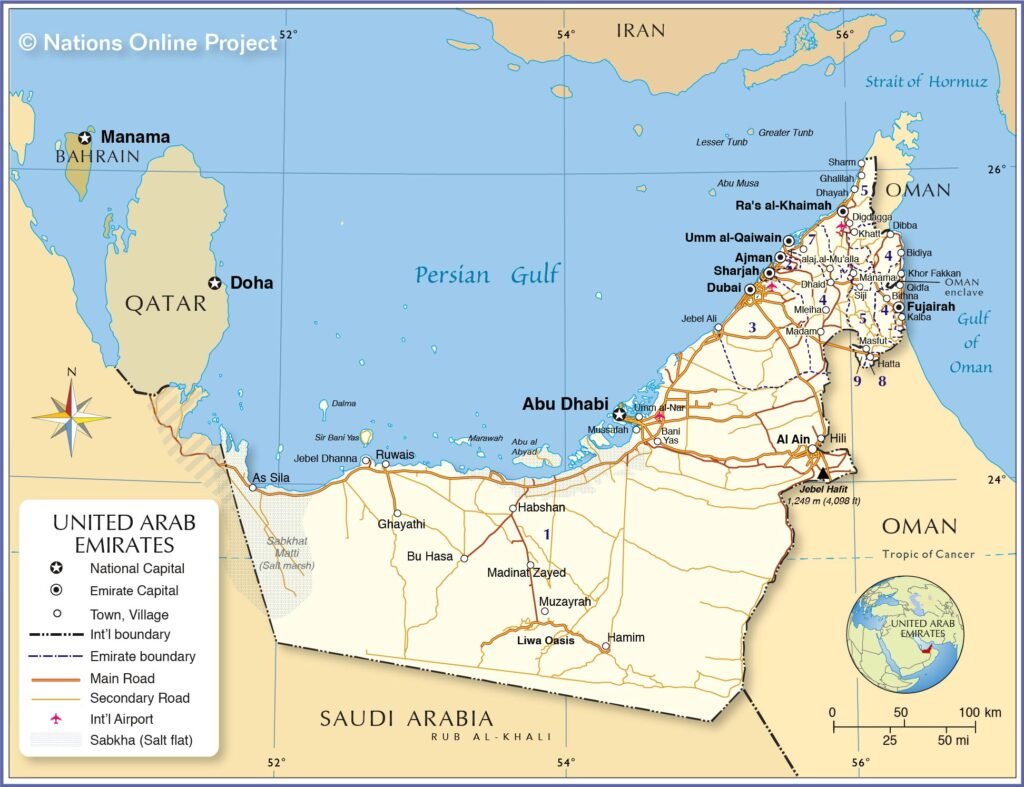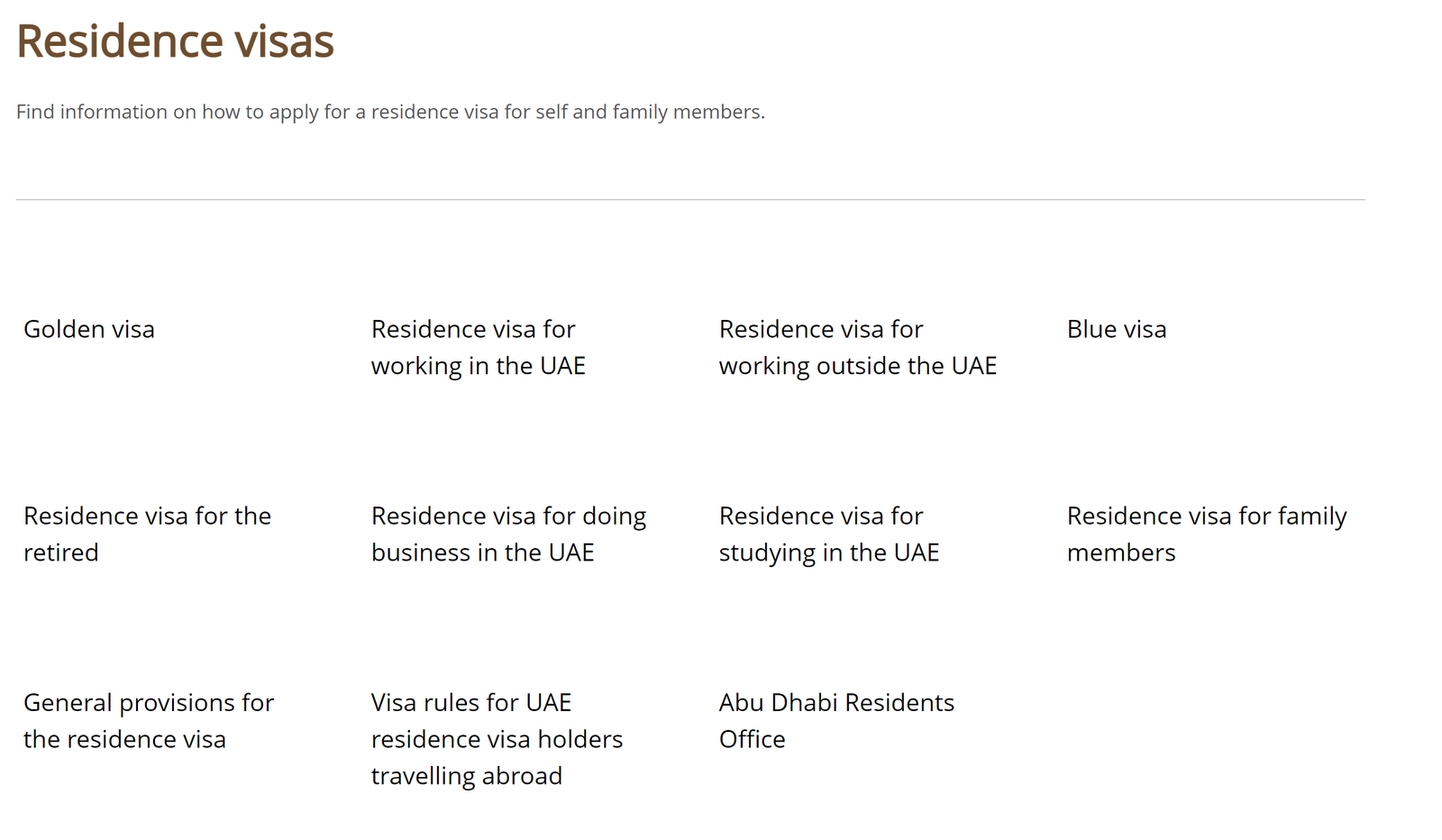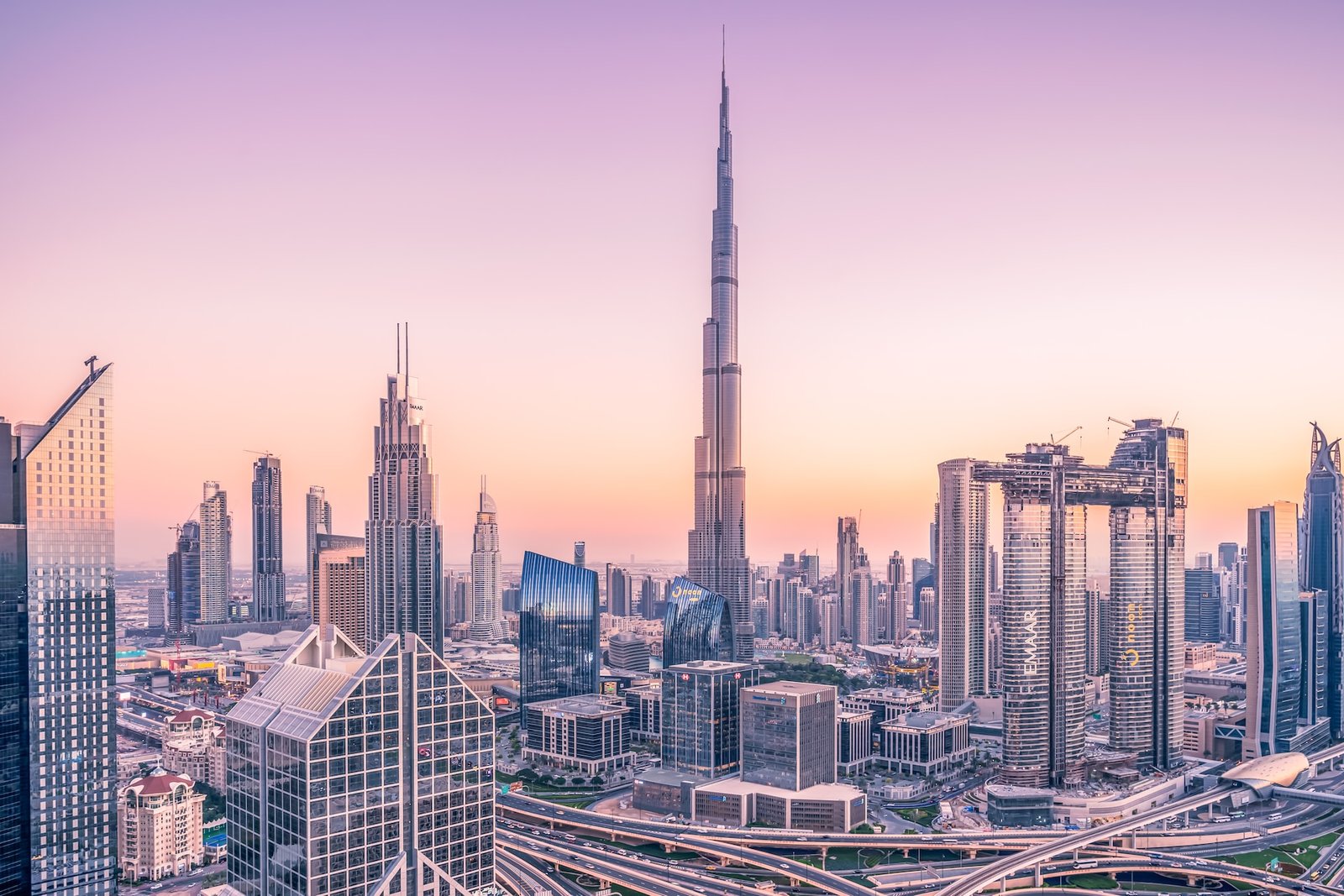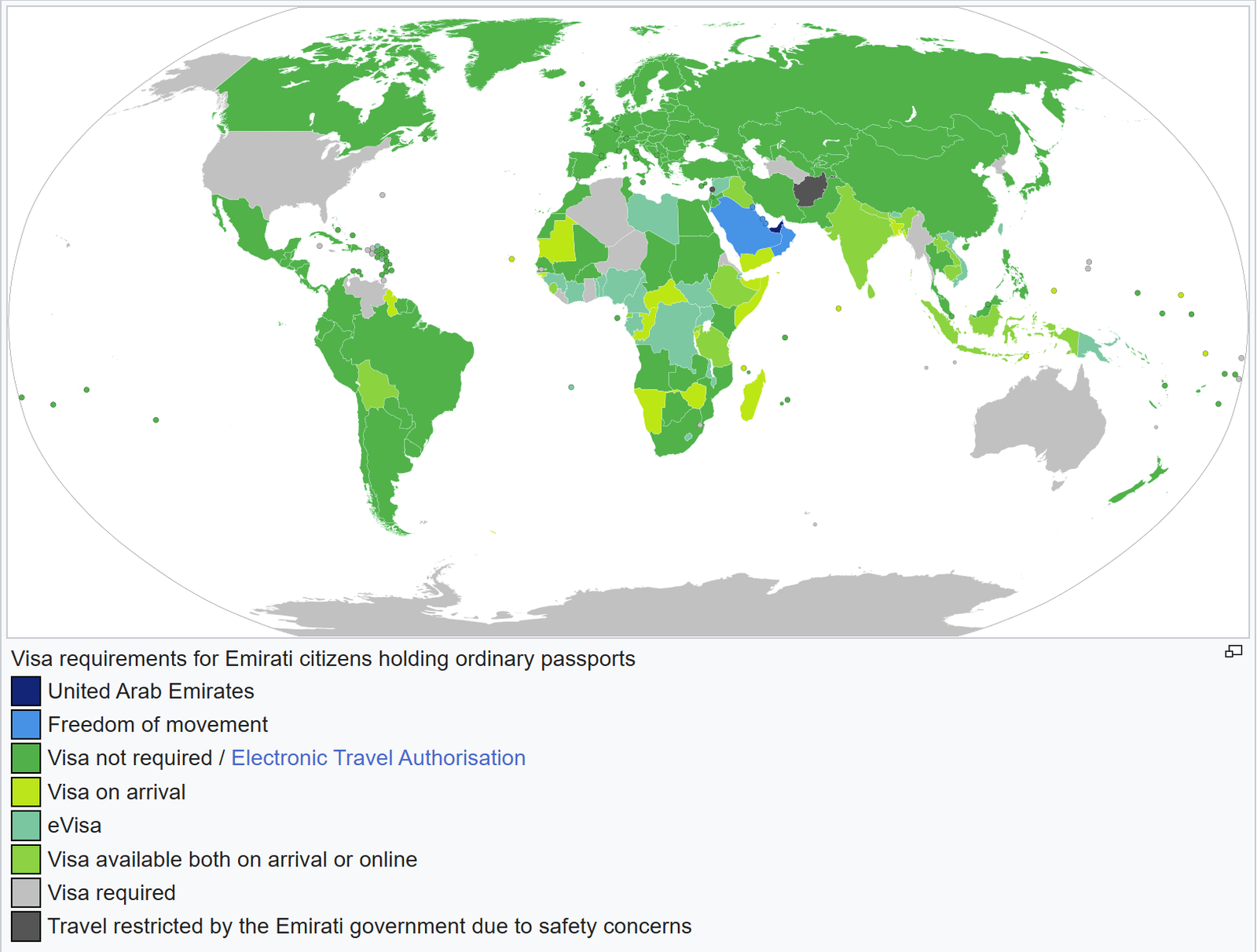How To Get Residency in the UAE: A Comprehensive Guide
Capital: Abu Dhabi
Largest City: Dubai
Population: 11,027,129 (2024, 92nd)
Ethic Group: 59.4% South Asian, 11.6% Emirati Arab, 10.2% Egyptian, 6.1% Filipino
Area: 83,600 km2 (114th)
Offical Language: Arabic
Currency: Dirham (as of July, 15th, 2025, 1 Dirham = 0.27 USD)
GDP per Captial (PPP): $77,251 (2025 estimated, 14th)
Human Development Index: 0.940 (2023, 15th)

Country Profile:
The United Arab Emirates, a prominent nation in West Asia, is renowned for its wealth and comprises seven distinct emirates: Abu Dhabi, Dubai, Sharjah, Ajman, Fujairah, Umm Al-Quwain, and Ras Al Khaimah.
In recent years, the UAE has strategically pursued economic diversification, with notable success in Dubai, which has blossomed into a global hub for international finance, trade, and tourism. The nation’s attractive free trade zones and state-of-the-art infrastructure have been instrumental in drawing substantial international investment.
Culturally, the UAE is characterized by its vibrant multiculturalism. A significant expatriate population contributes to this diversity, with a remarkable 88% of permanent residents being non-UAE nationa
Visa & Immigration System:
The UAE Visa System: An Overview
The UAE stands out as one of the most open nations in the Middle East. It heavily relies on foreign labor to maintain and operate its various sectors. Furthermore, individual emirates such as Dubai and Abu Dhabi have implemented low-tax policies and fully open visa policies, successfully attracting numerous entrepreneurs and financially independent individuals.
Over the last three decades, the UAE has progressively transformed into a pivotal financial center, commercial hub, and a major global expatriate destination in the Middle East and worldwide.
Compared to other countries, the UAE has three main advantages for long-term residency permits:
1. No residency restrictions: Several mainstream non-employment visas in the UAE do not impose any residency duration requirements on visa holders. You can maintain your visa without entering the UAE for an extended period.
2. Low tax advantage: The UAE does not impose common taxes like inheritance tax, gift tax, income tax, or property tax on tax residents. Currently, Dubai is the only international metropolis in the world that does not impose income tax on residents.
If you establish a company locally with an annual profit of less than 375,000 dirhams (approximately $103,000), you are not required to pay taxes. Only when your company’s profits exceed 375,000 dirhams does the UAE government impose a 9% corporate tax, which is still much lower than in other countries.
3. Convenient living: The UAE, particularly Dubai, is a paradise for the wealthy. Although the cost of living is high, the social security is excellent, and the healthcare and education systems are well-developed.
However, for most foreigners, the UAE can only be a temporary stop in life, not a final destination. You can continuously renew your UAE visa under the original conditions at the time of application, but if you want to apply for citizenship, you need to be proficient in Arabic language and culture and have legally resided in the country for at least 30 consecutive years.
Residence Permits:

The UAE offers several types of residency visas, which include the following:
1. Golden Visa: This is a long-term residency visa system introduced by the UAE government in 2019. It is not only issued to investors in the real estate or business sectors but also allows top talent from various industries, renowned athletes, cultural figures, and even high-achieving graduates from top universities to apply for the Golden Visa.
If you apply for the UAE Golden Visa through investment, the minimum investment requirement is 2 million dirhams, approximately USD 545,000.
The UAE Golden Visa typically has a validity period of five or ten years.
2. Work Visa (Residence visa for working in the UAE): This is the most common UAE visa and is further divided into two main categories.
Green Visa for employment: This is issued to self-employed individuals, freelancers, and skilled workers with a university degree or equivalent professional qualifications. It has a validity period of five years.
Employment Visa: This is the primary means for people to work in the UAE. A significant portion of the UAE’s resident population, including 59.4% of South Asians such as Indians and Pakistanis, and 6.1% of Filipinos, work in low to mid-level jobs under this visa, contributing to the country’s development and sending remittances back to their home countries.

3. Green Visa: The UAE Green Visa is divided into two main categories.
The first category is the work-related Green Visa, as mentioned earlier.
The second category is the investment-related Green Visa, issued to investors who have invested 1 million dirhams, approximately USD 273,000, or more in the UAE.
The difference between the investment-related Green Visa and the investment-related Golden Visa is that, for the former, your investment needs to be endorsed by a local institution and must achieve a sufficient score in an evaluation system by the relevant local authorities.
4. Digital Nomad Visa (Residence Visa for working outside the UAE): This visa is issued to individuals who can work remotely for a company outside the UAE or are self-employed and maintain financial independence.
The UAE offers two main Digital Nomad Visas:
Dubai Digital Nomad Visa was Launched in March 2021, it is one of the most popular digital nomad visa programs globally, but it comes with a high financial requirement: you must prove a monthly income of at least USD 5,000.
Abu Dhabi Digital Nomad Visa: This has slightly lower financial requirements: applicants must be remote workers with a minimum monthly income of USD 3,500.
If you are interested in the Abu Dhabi Digital Nomad Visa, you can visit this link for more information provided on the official website.
5. Blue Visa: This visa is issued to individuals who have made significant contributions to global environmental causes (not limited to the UAE).
6. Retirement Visa (Residence Visa for the Retired): The Dubai Retirement Visa is one of the most well-known retirement visa programs in the world. Applicants must be at least 55 years old and must prove an annual income of at least 180,000 dirhams, approximately USD 50,000; or invest 1 million dirhams, approximately USD 273,000, in real estate or bank deposits locally.
Abu Dhabi also offers a similar retirement visa program to Dubai, requiring applicants to invest 1 million dirhams in real estate or bank deposits or prove an annual fixed income of at least 240,000 dirhams.
Tax Implication:
The UAE’s taxation system is known for its business-friendly approach, though it has evolved in recent years. While there is no personal income tax for individuals, certain taxes apply to businesses and specific goods/services.
A 5% Value Added Tax (VAT) was introduced in 2018, applicable to most goods and services, with some exemptions (e.g., certain healthcare, education, and residential real estate supplies). Businesses meeting specific turnover thresholds must register for and collect VAT.
In 2023, the UAE implemented a federal Corporate Tax. A 0% rate applies to taxable income up to AED 375,000, while a 9% rate is levied on profits exceeding this amount. Companies in free zones may still benefit from a 0% corporate tax on “qualifying income” if they meet specific criteria. Excise taxes are also imposed on products like tobacco and sweetened beverages.
Citizenship:
The prospects of naturalization in the UAE are virtually unattainable. Only those foreign individuals who have maintained legal residency in the country for an unbroken period of 30 years and have a solid grasp of Arabic language and culture are qualified to apply for a UAE passport.
Passport Power:
The UAE recognizes dual citizenship and its passport ranks 8th globally. Passport holders enjoy visa-free or visa-on-arrival access to 184 countries and regions around the world. (July 15th, 2025)

Useful Links:
The UAE Golden Visa:https://u.ae/en/information-and-services/visa-and-emirates-id/golden-visa
Work Remotely From Dubai:https://www.visitdubai.com/en/invest-in-dubai/live-and-work/visas-and-entry/work-remotely-from-dubai
GDRFA:https://gdrfad.gov.ae/en
The Department of Culture & Tourism of Abu Dhabi:https://tcaabudhabi.ae/en/default.aspx
The UAE Retirement Visa:https://u.ae/en/information-and-services/visa-and-emirates-id/residence-visas/residence-visa-for-the-retired